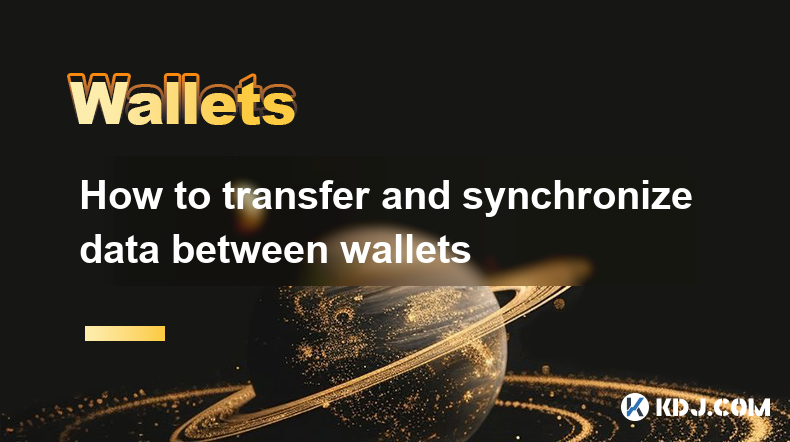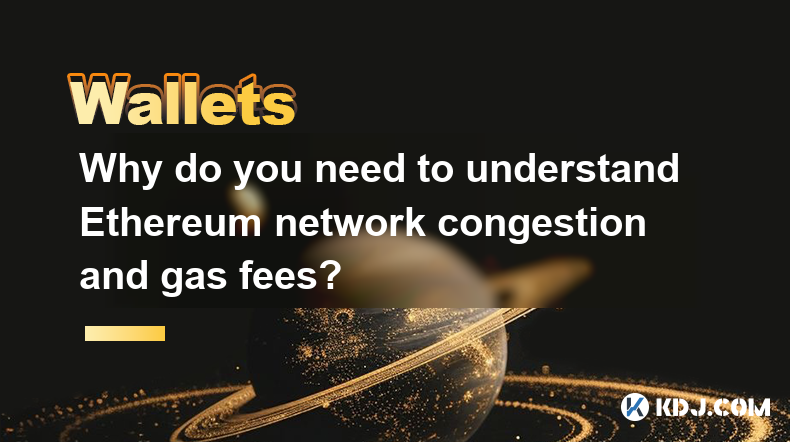-
 Bitcoin
Bitcoin $85,116.5880
-4.13% -
 Ethereum
Ethereum $2,315.9027
-6.90% -
 Tether USDt
Tether USDt $0.9990
0.03% -
 XRP
XRP $2.1842
-5.32% -
 BNB
BNB $611.4012
-2.50% -
 Solana
Solana $137.8915
-3.38% -
 USDC
USDC $0.9999
0.01% -
 Dogecoin
Dogecoin $0.2052
-3.40% -
 Cardano
Cardano $0.6551
-5.03% -
 TRON
TRON $0.2272
-0.86% -
 Chainlink
Chainlink $15.1868
-1.55% -
 Litecoin
Litecoin $122.4656
2.61% -
 Avalanche
Avalanche $22.2937
0.66% -
 Sui
Sui $2.9087
-4.50% -
 Stellar
Stellar $0.2865
-3.04% -
 Toncoin
Toncoin $3.4626
-3.64% -
 Shiba Inu
Shiba Inu $0.0...01437
0.25% -
 UNUS SED LEO
UNUS SED LEO $9.0583
0.11% -
 Hedera
Hedera $0.1972
-0.02% -
 Polkadot
Polkadot $4.8336
1.95% -
 MANTRA
MANTRA $7.2498
-5.08% -
 Hyperliquid
Hyperliquid $20.1457
-2.66% -
 Ethena USDe
Ethena USDe $0.9989
-0.01% -
 Bitcoin Cash
Bitcoin Cash $294.8364
-0.68% -
 Dai
Dai $0.9999
0.02% -
 Uniswap
Uniswap $7.9886
-4.73% -
 Bitget Token
Bitget Token $3.9143
-10.81% -
 Monero
Monero $214.4466
-1.65% -
 NEAR Protocol
NEAR Protocol $3.0444
-0.91% -
 Aptos
Aptos $6.1334
8.88%
Digital currency wallet recommended downloads
A cryptocurrency wallet serves as the gateway to the digital asset ecosystem, enabling users to securely store, send, and receive their virtual funds.
Jan 12, 2025 at 03:48 pm

Key Points:
- Understanding the Need for Cryptocurrency Wallets
- Types of Cryptocurrency Wallets
- Factors to Consider When Choosing a Cryptocurrency Wallet
- Recommended Cryptocurrency Wallets for Beginners
- Recommended Cryptocurrency Wallets for Advanced Users
- Security Measures for Securing Your Cryptocurrency Wallet
- Best Practices for Managing Cryptocurrency Wallets
- FAQs on Cryptocurrency Wallet Recommendations
Understanding the Need for Cryptocurrency Wallets
Cryptocurrency wallets are essential tools for securely storing, sending, and receiving digital assets. Unlike traditional bank accounts, cryptocurrency wallets do not hold actual currency but rather the private keys that grant access to funds held on the blockchain. Without a cryptocurrency wallet, individuals would be unable to interact with the cryptocurrency ecosystem.
Types of Cryptocurrency Wallets
Different types of cryptocurrency wallets cater to the diverse needs of cryptocurrency users. The main types include:
- Software Wallets: Installed on a computer, smartphone, or tablet, these wallets offer convenience and accessibility but may be susceptible to malware and hacking attacks.
- Hardware Wallets: Dedicated devices designed specifically for cryptocurrency storage, providing enhanced security through offline storage and tamper-proof hardware.
- Paper Wallets: Physical documents containing printable private and public keys, offering high security but with limited accessibility and risk of damage or loss.
- Online Wallets: Accessible through web browsers, these wallets offer ease of use but may raise concerns about third-party access and security vulnerabilities.
Factors to Consider When Choosing a Cryptocurrency Wallet
Selecting an appropriate cryptocurrency wallet involves considering factors such as:
- Security: The wallet's ability to protect funds from theft, hacking, and malware attacks.
- User-friendliness: The ease of use, navigation, and accessibility of the wallet.
- Supported Currencies: The wallet's compatibility with specific cryptocurrencies and its multi-asset capabilities.
- Transaction Fees: The costs associated with sending and receiving cryptocurrency.
- Reputation: The wallet's track record, reliability, and user reviews.
Recommended Cryptocurrency Wallets for Beginners
- Exodus: A user-friendly multi-asset software wallet with a simple interface and integrated exchange.
- Trezor Model T: A highly secure hardware wallet with an intuitive touchscreen and support for numerous cryptocurrencies.
- Ledger Nano S Plus: Another reputable hardware wallet with a compact design and high-security features.
- Trust Wallet: A mobile-based software wallet designed for beginners and supports a wide range of cryptocurrencies.
Recommended Cryptocurrency Wallets for Advanced Users
- MetaMask: A popular browser extension wallet that allows users to interact with decentralized applications.
- Coinbase Wallet: A multi-chain software wallet with advanced trading features and support for various dApps.
- Safepal S1: A premium hardware wallet with a touchscreen and Bluetooth connectivity.
- Arculus: A secure hardware wallet with a built-in biometric sensor and multi-asset support.
Security Measures for Securing Your Cryptocurrency Wallet
To ensure the safety of cryptocurrency funds, it is crucial to implement security measures such as:
- Use Strong Passwords: Create complex and unique passwords for your wallet.
- Enable Two-Factor Authentication (2FA): Add an extra layer of security by requiring a verification code sent to your phone or email.
- Store Private Keys Securely: Keep private keys offline in cold storage or on a physically secure device.
- Be Aware of Phishing Scams: Watch out for emails or messages attempting to trick you into revealing sensitive information.
- Update Software Regularly: Install the latest software updates to patch any security vulnerabilities.
Best Practices for Managing Cryptocurrency Wallets
For effective management of cryptocurrency wallets, adopt best practices such as:
- Monitor Transactions Regularly: Keep track of incoming and outgoing transactions to detect any unauthorized activity.
- Backup Your Wallet: Store a backup of your wallet seed phrase in a secure location.
- Use a Dedicated Cryptocurrency Wallet: Separate your cryptocurrency wallet from your general-purpose computer or device.
- Don't Share Your Private Keys: Keep your private keys secret and never share them with anyone.
- Stay Informed About Crypto Security: Keep abreast of the latest cryptocurrency security trends and vulnerabilities.
FAQs on Cryptocurrency Wallet Recommendations
Q: Which type of cryptocurrency wallet is most secure?
A: Hardware wallets, such as Trezor and Ledger, provide the highest level of security for cryptocurrency assets.
Q: Is it necessary to use a hardware wallet for all cryptocurrencies?
A: It is advisable to use a hardware wallet for storing large amounts of cryptocurrency or for enhanced security. However, software wallets may suffice if funds are modest and security is not a primary concern.
Q: How often should I back up my cryptocurrency wallet?
A: It is recommended to back up your cryptocurrency wallet regularly, especially before making any significant changes or transactions.
Disclaimer:info@kdj.com
The information provided is not trading advice. kdj.com does not assume any responsibility for any investments made based on the information provided in this article. Cryptocurrencies are highly volatile and it is highly recommended that you invest with caution after thorough research!
If you believe that the content used on this website infringes your copyright, please contact us immediately (info@kdj.com) and we will delete it promptly.
- Bitcoin price drops to lows not seen since Nov. 11, 2024
- 2025-02-27 12:55:31
- Bitcoin (BTC) Price Drops Below $90K, Experiencing Its Biggest Price Drop
- 2025-02-27 12:55:31
- Bitcoin and Ethereum Are Losing Momentum—Where's the Next Big Move?
- 2025-02-27 12:50:31
- Crypto ATM Fraud Prevention Act aims to crack down on Bitcoin ATM scams targeting seniors
- 2025-02-27 12:50:31
- MicroStrategy CEO Michael Saylor Calls on Jeff Bezos to Use Bitcoin
- 2025-02-27 12:45:32
- Nvidia (NVDA) stock price target raised to $175 as Q4 results beat estimates
- 2025-02-27 12:45:32
Related knowledge

What are cold storage and hot storage? Which one is safer?
Feb 22,2025 at 03:18pm
Key Points:Cold storage and hot storage are two methods of storing cryptocurrencies.Cold storage involves storing cryptocurrencies offline, while hot storage involves storing them online.Cold storage is generally considered safer than hot storage, as it is not connected to the internet and is therefore less susceptible to hacking.Cold StorageCold storag...

How to synchronize wallets in multiple devices and browsers
Feb 22,2025 at 09:18am
Key Points:Understand the different types of cryptocurrency wallets and their synchronization capabilities.Learn how to synchronize hardware wallets with multiple devices.Discover the steps involved in synchronizing software wallets across platforms.Explore the options for synchronizing mobile wallets on different devices.Gain insight into browser exten...

How to deal with theft of wallets or the leak of mnemonic words?
Feb 23,2025 at 12:36am
Key PointsUnderstanding the Different Types of Wallet TheftSteps to Take If Your Wallet Is Stolen or Mnemonic Words LeakedPreventive Measures to Protect Your Crypto AssetsFrequently Asked QuestionsHow to deal with theft of wallets or the leak of mnemonic words?Understanding the Different Types of Wallet TheftHot Wallet Theft:Hot wallets are connected to...

How to transfer and synchronize data between wallets
Feb 21,2025 at 12:25pm
Key Points:Understanding different wallet types and their capabilitiesIdentifying similarities and differences between walletsExploring options for transferring and synchronizing dataEnsuring data security and integrity during transferAddressing common challenges and troubleshooting tipsHow to Transfer and Synchronize Data Between Cryptocurrency Wallets...

Why do you need to understand Ethereum network congestion and gas fees?
Feb 21,2025 at 04:48am
Key PointsUnderstanding Ethereum Network Congestion and Gas FeesGas Fees ExplainedFactors Affecting Network CongestionStrategies for Minimizing Gas FeesImpact of Ethereum UpgradesUnderstanding Ethereum Network Congestion and Gas FeesThe Ethereum network is a decentralized platform that hosts a vast ecosystem of decentralized applications (dApps), non-fu...

How to participate in DAO voting and governance?
Feb 21,2025 at 03:42pm
Key Points:Overview of DAO Voting and GovernanceUnderstanding DAO Structures and MembershipRole of DAO Tokens and Voting RightsParticipating in Voting and Proposal SubmissionLeveraging Governance Tools and PlatformsImpact of Voting Participation on DAO OutcomesBest Practices for Effective DAO GovernanceHow to Participate in DAO Voting and Governance1. U...

What are cold storage and hot storage? Which one is safer?
Feb 22,2025 at 03:18pm
Key Points:Cold storage and hot storage are two methods of storing cryptocurrencies.Cold storage involves storing cryptocurrencies offline, while hot storage involves storing them online.Cold storage is generally considered safer than hot storage, as it is not connected to the internet and is therefore less susceptible to hacking.Cold StorageCold storag...

How to synchronize wallets in multiple devices and browsers
Feb 22,2025 at 09:18am
Key Points:Understand the different types of cryptocurrency wallets and their synchronization capabilities.Learn how to synchronize hardware wallets with multiple devices.Discover the steps involved in synchronizing software wallets across platforms.Explore the options for synchronizing mobile wallets on different devices.Gain insight into browser exten...

How to deal with theft of wallets or the leak of mnemonic words?
Feb 23,2025 at 12:36am
Key PointsUnderstanding the Different Types of Wallet TheftSteps to Take If Your Wallet Is Stolen or Mnemonic Words LeakedPreventive Measures to Protect Your Crypto AssetsFrequently Asked QuestionsHow to deal with theft of wallets or the leak of mnemonic words?Understanding the Different Types of Wallet TheftHot Wallet Theft:Hot wallets are connected to...

How to transfer and synchronize data between wallets
Feb 21,2025 at 12:25pm
Key Points:Understanding different wallet types and their capabilitiesIdentifying similarities and differences between walletsExploring options for transferring and synchronizing dataEnsuring data security and integrity during transferAddressing common challenges and troubleshooting tipsHow to Transfer and Synchronize Data Between Cryptocurrency Wallets...

Why do you need to understand Ethereum network congestion and gas fees?
Feb 21,2025 at 04:48am
Key PointsUnderstanding Ethereum Network Congestion and Gas FeesGas Fees ExplainedFactors Affecting Network CongestionStrategies for Minimizing Gas FeesImpact of Ethereum UpgradesUnderstanding Ethereum Network Congestion and Gas FeesThe Ethereum network is a decentralized platform that hosts a vast ecosystem of decentralized applications (dApps), non-fu...

How to participate in DAO voting and governance?
Feb 21,2025 at 03:42pm
Key Points:Overview of DAO Voting and GovernanceUnderstanding DAO Structures and MembershipRole of DAO Tokens and Voting RightsParticipating in Voting and Proposal SubmissionLeveraging Governance Tools and PlatformsImpact of Voting Participation on DAO OutcomesBest Practices for Effective DAO GovernanceHow to Participate in DAO Voting and Governance1. U...
See all articles




















































